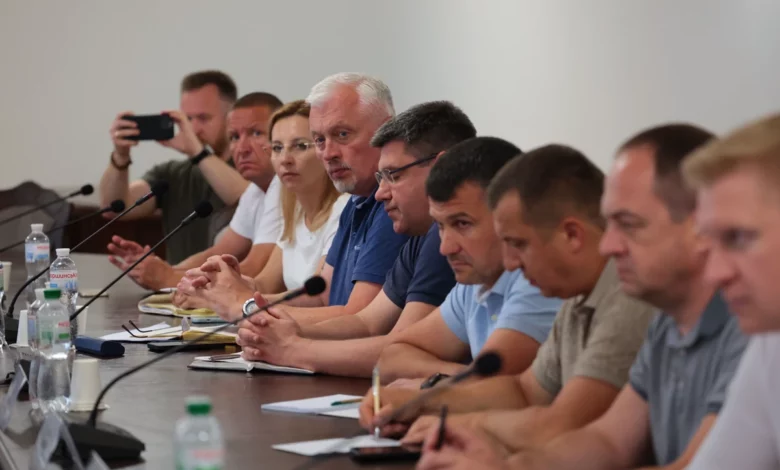
The relevant agreement was signed today between Lviv OVA and the German Society for International Cooperation.
Today, July 21, the Lviv Regional Military Administration discussed the process of liquidation of the Velikomostivska mine of the Lvivvugilya state enterprise. At the meeting, under the leadership of the head of the Lviv OVA Maksym Kozytskyi, the deputy for European integration of the Minister of Energy of Ukraine Yaroslav Demchenkov, the deputy head of the project “Supporting structural changes in the coal regions of Ukraine” of the German society for international cooperation GIZ Elise Vigier and other representatives of the government and parliament were present.
Yaroslav Demchenkov said that for the Ministry of Energy, the issue of the use of coal mines is extremely important, because after 2040, many of them will be decommissioned.
“The enemy has destroyed many generation facilities, distribution networks and central generation networks, so we need to consolidate our efforts to properly prepare for the coming winter. It is necessary for the territories to be as ready as possible for the energy transition after our victory, namely to abandon carbon and energy sources that include its use. Therefore, it is extremely important to pay due attention to the coal regions in order to properly transform them.” – Deputy Minister noted. And added:
“Mines are places of work for many people, so we need to prepare properly so that they can find alternative jobs. I hope that the GIZ project will finance the physical closure of the Lviv Coal mine and create new jobs. Also, with the help of the project, we must also solve the environmental issues of mine operation and minimize environmental risks. It is important for us that the experience gained in Lviv Oblast be used in the territories that are being de-occupied. We want Lviv Oblast to become a good example of the implementation of such a project, which we can be proud of and use the experience gained.”
Maksym Kozytskyi emphasized the importance of project implementation.
“This project did not start with the closure of the mines, but with alternative options for the development of the micro-region and its communities. Chervonograd region is an area with a strong potential that should be developed further. It is extremely important to have growth points and transformation provides such opportunities. Together with the transformation of the micro-region, we need to transform our own thoughts on this issue. Our task is to unite people who want to develop their district and community. This project provides opportunities for the creation and implementation of opportunities and qualitative changes, and we will overcome existing obstacles thanks to joint cooperation,” said the head of Lviv Oblast.
Elise Vigier spoke about a number of challenges faced by representatives of the project “Supporting Structural Changes in the Coal Regions of Ukraine”.
“We understand very well the conditions in which Ukraine is now and is fighting the enemy. Our project is full of challenges that we constantly face and try to solve. Structural changes are a very serious process that affects all spheres of a certain region, including economic, energy, social and environmental. The German government, through GIZ, cannot solve these problems on its own, so we enlist the support of our Ukrainian partners for better coordination of actions. In the context of this project, we have created a specific action plan in order to proceed to its implementation in a very targeted manner. Closing unprofitable mines is also a difficult process. We received a mandate to close two unprofitable mines in Ukraine, we found expert contractors and specialists in this field to carry out the necessary work. But we have a number of challenges, including gaps between Ukrainian and European legislation. For better implementation of this project, it is necessary to make a number of changes to the laws of Ukraine. The second challenge is our communication, which is quite sensitive, because it is difficult to talk to people about giving up coal and switching to alternative energy sources. The third challenge is our cooperation, which has been suspended due to the war, but we have found new ways to ensure a better presence on the ground and transfer of information. I want to invite everyone to cooperate and unite in the implementation of this project,” summed up the deputy head of the project.
After the meeting, they signed a cooperation agreement on the development of design and estimate documentation for an industrial park with an area of almost 90 hectares. The memorandum envisages co-financing by Lviv OVA and GIZ in the territory of the Chervonograd urban territorial community of the project for the construction of the engineering and transport infrastructure of the Chervonograd industrial park. In the future, the introduction of European-standard tracks from the Polish border to the park is also being considered in order to increase its competitiveness and improve logistics connections.

